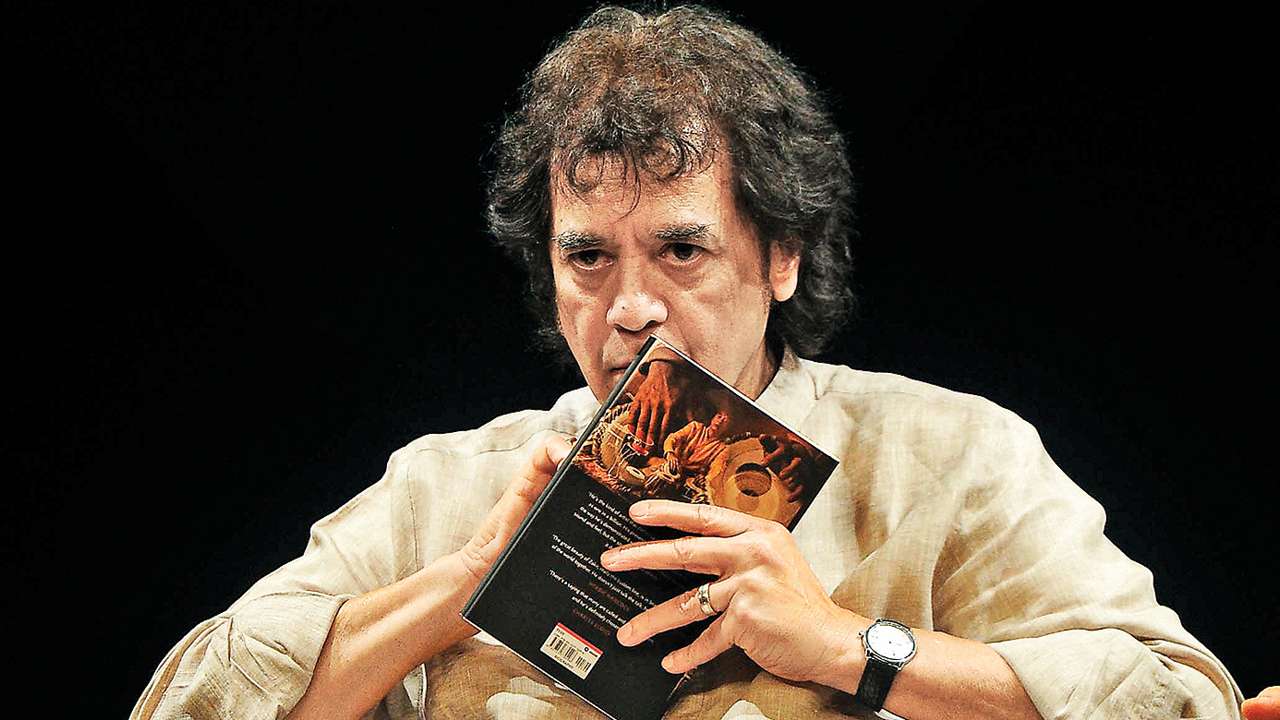
The credit for this should go to Nasreen Munni Kabir. She has brought out books on Javed Akhtar, Lata Mangeshkar, Waheeda Rehman and many other leading legends. When she approached me, I hesitated about opening up to this extent about my life. But she was persistent and worked around my schedule to speak to me.
Not all of it. Often our timings wouldn't match. She'd then build a thread of questions around a thought, mail them to me, and I'd then mail back the responses. To her and the publisher's credit, they didn't change anything in those responses. I also partly credit my wife Antonia Minnecola (Kathak dancer-teacher and manager) and her literature background. She poured over the book and fixed the language wherever needed.
And say what? I do not think I am doing anything exceptional. I like music and I am getting to pursue it. I can name 15-20 brilliant tabla exponents who are good or better than me. Having said that, maybe this book has set into motion a train of thoughts that might lead to a book in the future.
When I was born, my father held me and whispered the bols of the tabla in my ears instead of the original prayer. Very lovingly, he allowed me to find my own love for music, and once I did, he rigorously trained me for hours. As a child, I remember accompanying abbaji to private mehfils in the homes of the 'beautiful people.' While they wined and dined, musicians waited in the kitchen and only came out when summoned. I remember bringing back large tiffin carriers with left-over food as honorarium. My father made it categorically clear he did not expect my brothers or me to be his replicas. "They've to be better than me," he'd say. "Photocopies are eventually consigned to the dustbin and only originals preserved."
All abba was concerned with was the tabla. It's not like my bunking school to run off to the movies not reach him, but he never seemed unduly bothered. More than my excesses as a child, he was interested in what I was doing with opportunities, as in the recordings for Madan Mohan or Shankar-Jaikishen. The only time he got really serious with me was when I broke my left ring finger while playing cricket for my school at the age of 14. He didn't get angry or raise his voice, but was distraught. Here was this man who always spoke so softly and oozed love. Seeing him so serious got to me. He told me, without raising his voice, in chaste Urdu, "There is this vision I have for you about reaching the pinnacles as a percussionist. You cannot be careless about that." Cricketers weren't exactly making as much money as they do now, you see.
I was barely seven when I first accompanied the sarod legend Ustad Ali Akbar Khan and was only 18 when I accompanied Pt Ravi Shankar on a concert series. I think they indulged me because of their regard for abbaji. Pt Ravi Shankar asked me after two whole concerts if I recalled what he had played. And I was blank. He instilled in me the sense of dialogue in the music-making process. This has made me a better musician.
Yet, they were so different in their approach to their art. Pt Ravi Shankar changed the very grammar of the Hindustani classical music concert and made it more audience-friendly and entertaining. Ustad Ali Akbar Khan was almost one with his music and usually in a meditative trance on stage, barely looking up at the audience or accompanists.
But look at how phenomenally talented he is. You know, I was one of the musicians who sat in the pit in front of the stage and played music for the original play Katyar Kaljat Ghusli in the early 60s, where Rahul's grandfather, the late legend Vasantrao Deshpande, played Khan saheb.
I would wake up at 3am and train with abbaji. By 7am I would dash to the madarsa to train reading the Quran. In an hour, it would be time to attend St Michael's High School. That kind of has brought down any fences in my head. Artistes cannot and should not preach. Those wise enough can pick up so many life lessons from their lives.